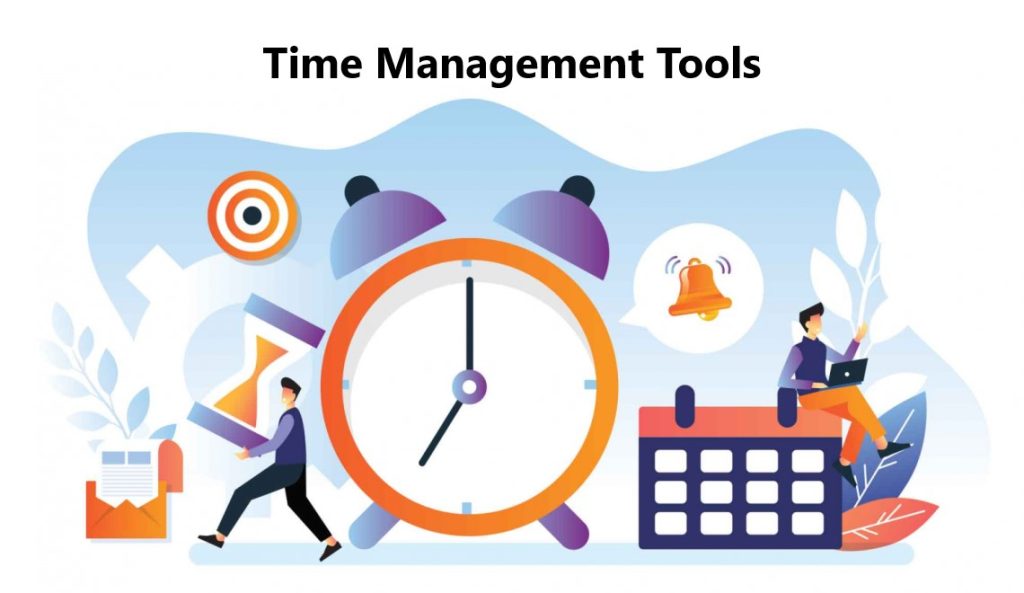 Managing time effectively is critical for success. With constant demands on your attention, leveraging the right Time Management Tools for Businesses can make all the difference. These tools help streamline tasks, prioritize workflows, and reduce the time spent on non-essential activities. Below we’ll explore various time management tools that enhance productivity and how businesses can benefit from their implementation.
Managing time effectively is critical for success. With constant demands on your attention, leveraging the right Time Management Tools for Businesses can make all the difference. These tools help streamline tasks, prioritize workflows, and reduce the time spent on non-essential activities. Below we’ll explore various time management tools that enhance productivity and how businesses can benefit from their implementation.
The Importance of Time Management Tools
Businesses, especially those scaling quickly, often face challenges in managing their time efficiently. As companies grow, it becomes harder to keep track of multiple projects, tasks, and deadlines. This is where Time Management Tools for Businesses play a crucial role. By implementing these tools, businesses can improve efficiency, increase accountability, and ensure that tasks are completed on time.
Transitioning to time management tools helps minimize human error and keeps employees focused on priorities. These tools also provide managers with better visibility into how time is allocated across the organization. This insight enables better decision-making and resource allocation, ensuring that everyone stays on track.
With the rise of remote work and distributed teams, time management tools have become even more critical. Employees working from different locations need effective tools to collaborate, track their hours, and complete tasks without delays. Whether it’s tracking individual tasks or managing team projects, these tools create a more organized workflow, leading to higher productivity.
Task Management and Prioritization
One of the primary functions of Time Management Tools for Businesses is task management and prioritization. Tools like Trello, Asana, and Monday.com allow teams to break down large projects into smaller, manageable tasks. These platforms enable users to assign tasks, set deadlines, and track progress, ensuring that all team members remain aligned on project goals. By prioritizing tasks, businesses can ensure that high-impact activities are completed first, reducing wasted time on less essential duties.
Effective time management tools also offer features like time tracking, which lets employees monitor how long they spend on specific tasks. This helps businesses identify areas where time is being wasted and make adjustments to improve efficiency. For example, if a team is consistently spending too much time on administrative tasks, managers can reassign resources or automate certain processes.
Moreover, these tools often come with integrations that streamline communication. Instead of juggling multiple platforms for communication, task management, and file sharing, businesses can use integrated tools that handle everything in one place. This reduces the need for back-and-forth emails or status meetings, allowing employees to focus on their core responsibilities.
Time Tracking and Accountability
Time tracking is another essential feature of Time Management Tools for Businesses. Tools like Toggl, Harvest, and Clockify are designed to monitor the time spent on tasks and projects. These tools provide detailed reports on how employees allocate their time, which can be invaluable for businesses looking to improve productivity. Managers can use these reports to evaluate performance, identify bottlenecks, and streamline workflows.
Additionally, time tracking tools foster accountability by allowing employees to track their working hours. This is particularly beneficial for remote teams where visibility into daily activities might be limited. Employees can log their hours, providing a transparent record of time spent on various tasks. As a result, businesses can ensure that employees remain productive and that time is being used effectively.
Transitioning to time tracking tools also benefits businesses by offering better insight into project costs. For businesses that work on client projects, accurate time tracking ensures that billing is based on actual hours worked, minimizing discrepancies. Furthermore, these tools can help businesses forecast project timelines more accurately, reducing delays and ensuring that clients receive services on time.
Project Management and Collaboration
Effective project management is essential for businesses of all sizes. Time Management Tools for Businesses like Wrike, Basecamp, and Microsoft Project help teams collaborate efficiently and manage multiple projects at once. These platforms provide a centralized hub where teams can share files, communicate, and assign tasks. Having a single source of truth for all project-related information ensures that everyone stays updated, reducing the risk of miscommunication.
Time management tools with project management features often include Gantt charts, timelines, and Kanban boards, making it easier to visualize project progress. This visual representation allows managers to identify potential delays or resource constraints early and make the necessary adjustments. Transitioning from manual tracking to project management software reduces administrative work, allowing teams to focus on meeting their deadlines.
Furthermore, collaboration tools integrated with time management features foster better communication. Instead of relying on long email threads or weekly meetings, teams can communicate directly within the project management platform. This reduces time spent on updates and allows employees to focus on moving the project forward.
Automation and Workflow Optimization
Another key feature of Time Management Tools for Businesses is automation. Automating repetitive tasks frees up time for more critical work, helping businesses operate more efficiently. Tools like Zapier, for example, allow businesses to automate workflows by connecting different apps and automating repetitive processes. This reduces the time spent on manual data entry or task delegation.
Automation tools schedule routine tasks, send reminders, and trigger updates when users meet specific conditions. For instance, businesses can automate follow-up emails, ensuring that no customer communication falls through the cracks. By minimizing human intervention, these tools help reduce errors, increase productivity, and save time.
In addition to automation, time management tools help businesses optimize their workflows. By identifying inefficient processes, businesses can adjust their operations to better allocate time and resources. Workflow optimization tools, such as Smartsheet or Monday.com, allow managers to create customized workflows that suit the specific needs of their teams. These tailored workflows ensure that tasks move seamlessly from one phase to the next, reducing bottlenecks and delays.
Remote Work and Time Management
The rise of remote work has made time management tools even more critical. With employees working from different locations, businesses need tools that offer clear visibility into tasks and time allocation. Remote teams face unique challenges, such as miscommunication and lack of oversight, which can lead to missed deadlines or reduced productivity.
Time Management Tools for Businesses like Slack, Microsoft Teams, and Zoom integrate communication with project and time management. These platforms allow teams to collaborate effectively while keeping track of their tasks and deadlines. Additionally, they provide remote employees with the structure they need to manage their workdays and ensure that projects stay on track.
For remote teams, using tools that combine time tracking and collaboration features is essential. This approach lowers the chances of tasks slipping through the cracks, helping businesses maintain productivity even with team members spread across different time zones.
Time Management Tools for Long-Term Success
Investing in Time Management Tools for Businesses is essential for improving productivity, streamlining operations, and ensuring accountability. These tools provide businesses with the resources they need to track tasks, optimize workflows, and ensure that employees stay focused on their goals. Whether it’s task management, time tracking, or automation, the right time management tools help businesses thrive in a competitive environment.
As businesses continue to adapt to the modern work landscape, especially with the rise of remote work, these tools will play an even more significant role. Transitioning to digital solutions ensures that businesses can manage their time more efficiently and remain competitive. By investing in the right time management tools, companies can achieve long-term success and foster a more productive work environment.

